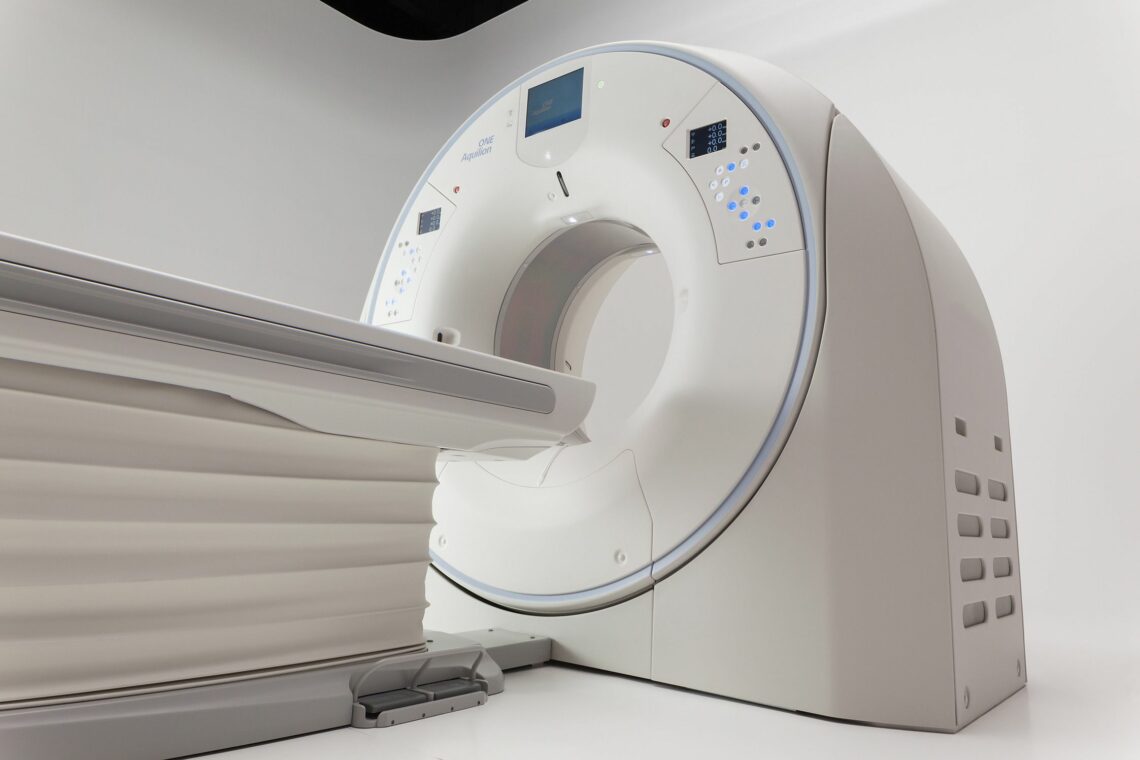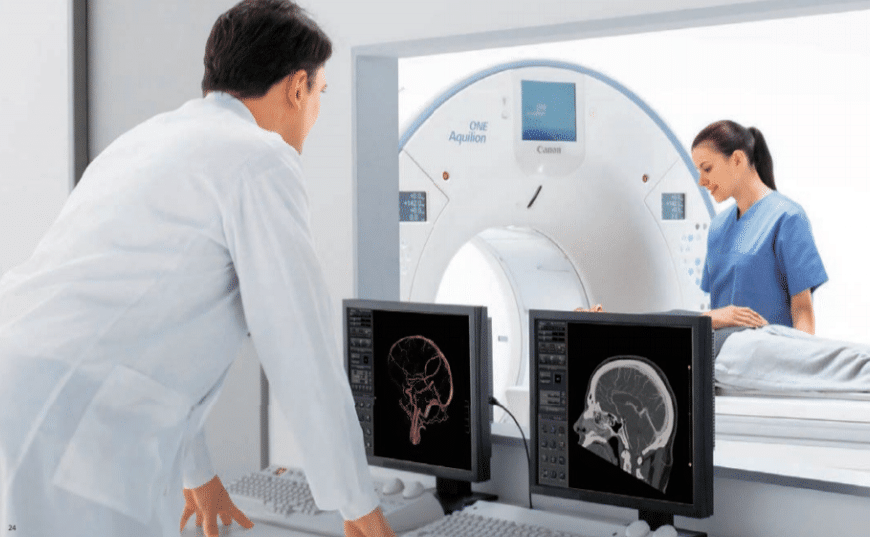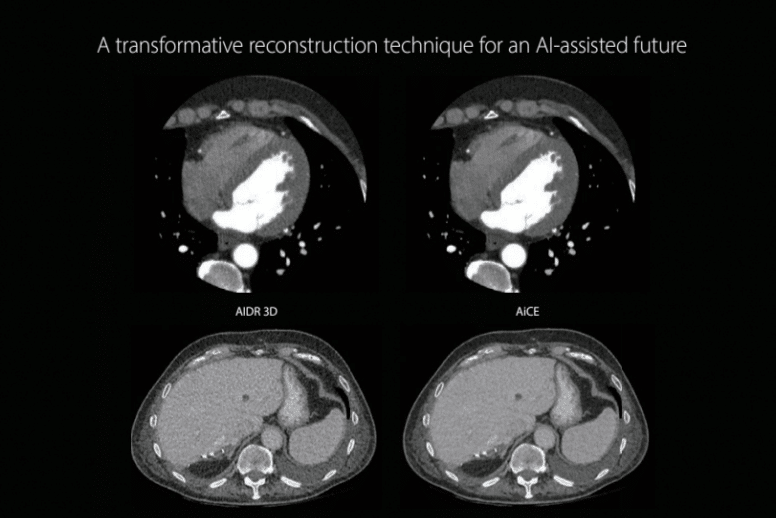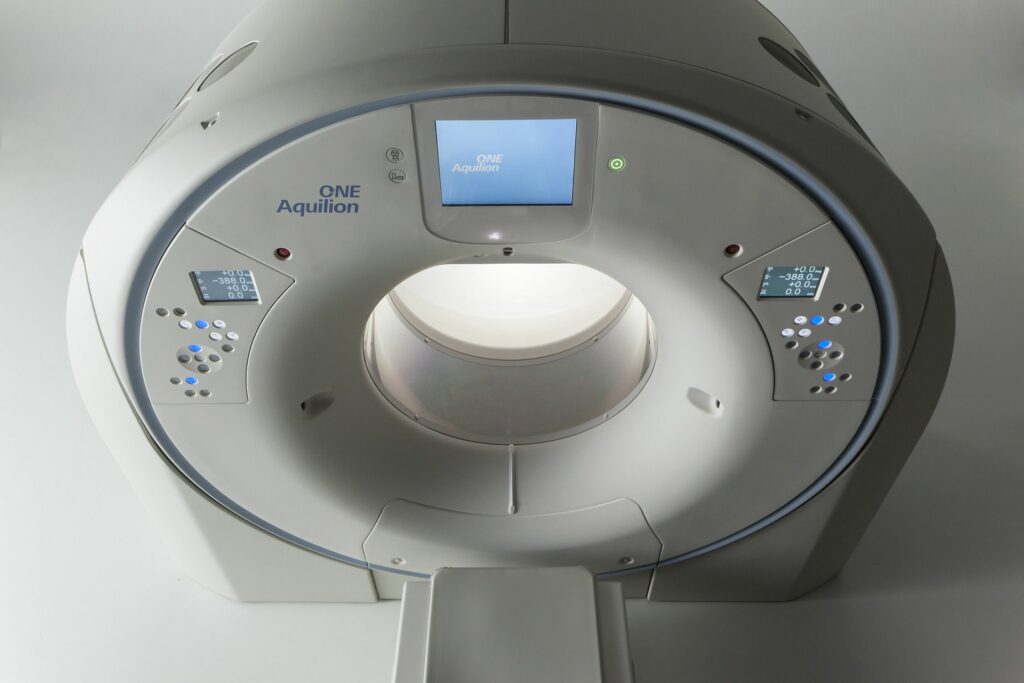
Coronary CT Angiography
State-Of-The-Art CT Scan For Your Heart - Melbourne
Get Ahead of Heart Disease with High-Quality CT Scanners in Melbourne

What are cardiac CT Scans?
You may have heard the terms CT Coronary Angiography, CTCA or CT Coronary Angiogram. These terms are all used interchangeably to describe the Computed Tomography (CT) scan of your heart.
A Cardiac CT is more sensitive than a conventional X-ray, allowing doctors to detect more subtle changes in the heart’s structure and function. Using the Aquilion One Genesis for CT imaging, we create a three-dimensional picture that provides a highly detailed look at your heart for accurate diagnosis and management.
Why do people need CT scans of their hearts?
There are many reasons your doctor or cardiologist may order a Computed Tomography (CT) of your heart and coronary arteries:
- A strong family history of cardiac issues and intermediate risk factors.
- A history of chest pain, shortness of breath or exercise intolerance.
- For diagnosing coronary artery disease if symptomatic for CAD or other risk factors such as high blood pressure.
- Early detection of issues with coronary arteries which may potentially lead to a heart attack in the future.
- If you have had a stress test where the results indicate there may be an issue with your heart or coronary arteries.
- To provide insight into your heart health and coronary arteries without having to conduct an invasive test such as a coronary angiogram.
- As part of a pre-surgery work-up.

Cardiac CT for Coronary Heart Disease treatment in Melbourne
Early detection of heart disease can catch potential heart attacks.
The Aquilion ONE GENESIS allows our cardiologists to measure your calcium score. This shows us how much calcium and hardening, or calcium-containing plaque, is in the walls of your coronary arteries, allowing us to estimate your risk of a heart attack or stroke. A CT calcium score is often recommended for asymptomatic patients, who have an intermediate to high risk of cardiovascular events (heart attack).
This enables lifesaving early intervention and management of a potential heart attack before any symptoms are evident. Using medications, risk management and lifestyle changes we aim to prevent any significant cardiac events from happening.
Why Melbourne Heart Care uses the revolutionary Aquilion ONE GENESIS for CT coronary angiogram scans
Stand-out features:
- 16cm wide area detector captures high-quality images of the whole heart in one fast rotation.
- 640 slice volume detector gives clear pictures with a high level of detail.
- Dynamic functional imaging provides valuable insights to optimise cardiac disease treatment.
- Optimised X-Ray spectrum for a patient-specific beam for more homogenous distribution.
Patient benefits:
Compared to other CT machines, the Aquilion ONE GENESIS has:
- A wider gantry opening at 78cm with a large table for patient comfort.
- Lower radiation dose.
- A quicker set-up and scan time.
How is the cardiac CT performed?
A CT coronary angiogram is a simple procedure. Your doctor will provide instructions prior to your scan, such as if you need to stop or start certain medications, and avoid caffeine or energy drinks the evening before and the morning of your scan. You will also need to fast for 2 hours.

On the day you can expect:
- A cannula will be inserted into a vein for a contrast injection (dye).
- If your heart rate is above 65 beats per minute we may need to give you some medication, either orally or through the cannula, to slow your heart rate down. This is so the CT scanner is able to get the clearest pictures possible.
- You will be asked to lie on the CT scanning table and stay as still as possible for the duration of the scan as movement can blur the images.
- We may also ask you to take a breath in and hold it at different stages of the scan.
- After the contrast injection is given you may feel hot, flushed or experience a metallic taste. These are common reactions to the contrast dye.
We advise that you have someone to drive you home after your scan as the beta-blocker medication can sometimes lower your blood pressure and may cause light-headedness.
What is the cost of having a CT scan for your heart at Melbourne Heart Care?
Why choose Melbourne Heart Care?
Contact Us
- Phone: 03 9592 2177
- Fax: 03 9592 3177
- Postal Address: Suite 16, 3 Male Street, Brighton 3186
